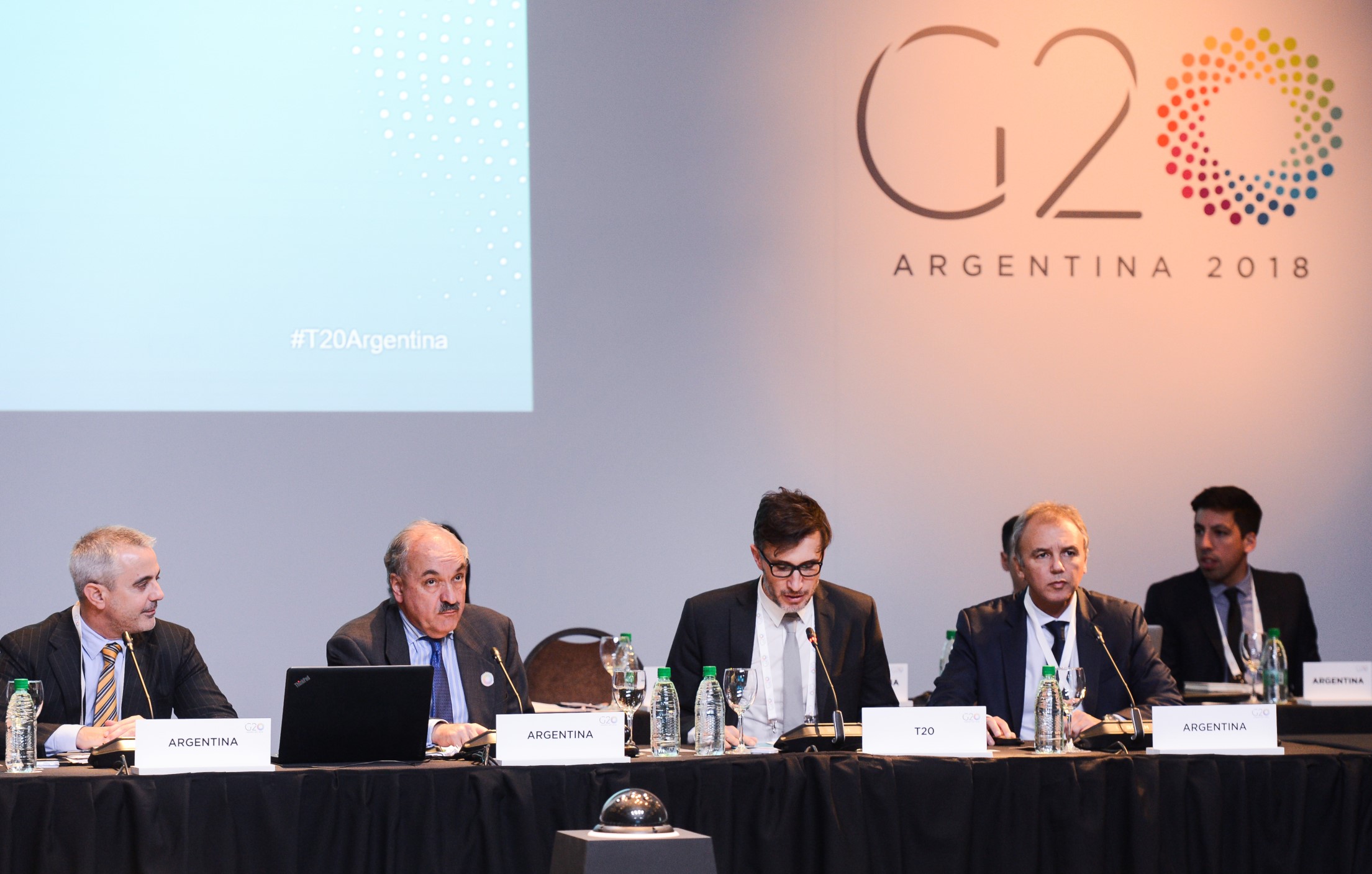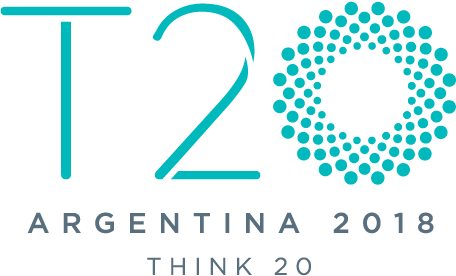In the session of the presentations of the engagement groups, the Think 20 (T20) handed over a report containing a preview of public policy recommendations which will be given the the G20 presidency.
Invited by the G20 Argentine presidency, representatives of leaders from all over the world came together in Ushuaia to debate ten global topics during the Second Sherpa meeting. One of the scheduled activities was a session dedicated to the engagement groups. Marlos Lima, member of the Advisory Board, Gustavo Martínez, secretary of the Executive Coordination, and Martín Rapetti, co-chair of Public Policy and Research represented the Think 20 (T20).

After the presentation, Gustavo Martínez underlined that these groups “provide the G20 with high-level experience in diverse areas, a great capacity for thinking and analysis to contribute significantly to the challenges on the international agenda; maintaining in an inclusive and transparent way the dialogue between different members of society and politics. In its case, the T20 allows the main think tanks from around the world to develop concrete and practical proposals for the G20.”
For his part, Martín Rapetti said that the session was “a great opportunity for the sherpas to listen to us”, and he added: “When there aren’t any urgent common threats, such as now, cooperation can be more complicated. However, this should not make us think it is unnecessary. The T20 thinks it is fundamental that more international cooperation exists. We are committed to contribute to this objective and ready to help the G20 with recommendations based on evidence.”
Proposals for a productive, inclusive and sustainable world
During the presentation, the T20 Argentina handed out a preliminary report containing its recommendations based on evidence to face the challenges that affect global governance.

“These proposals are based on a general principle that shapes our comprehension of what is best to address current challenges: a productive, inclusive and sustainable world needs more multilateralism”, it says on the document. These are:
- Implement public policies to promote the equality of opportunities for a quality education. These include: the implementation of teacher training; securing employability and youth development by non-formal learning; ensure education financing by local and global mechanisms that consider countries’ diversity and inequities.
- Ask the G20 to assess the country-specific starting point in terms of technology and skills – both average levels and distribution must be the first step in a policy framework that seeks to take advantage of the digital revolution.
- Ask the G20 to recognize the role of urban areas and local authorities as key actors in climate action and recommend G20 leaders to promote a new urban paradigm: a compact urban form in its morphology, complex (mixed use) in its organization,metabolically efficient, and socially cohesive.
- Recommend that the G20 facilitates the organization of a special group made up of the leading net exporters and biggest net importers to exchange information and discuss mechanisms to ensure that the behavior of the largest international players is more predictable while improving food trade conditions.
- We recommend G20 leaders to call for a stop to unilateral trade restrictions and to reinforce their commitment to a rule-based international trade system.
- To achieve greater gender economic equity, we recommend G20 leaders to: collect data disaggregated by gender to foster better policy design; remove all policies, laws and regulations that prevent or restrict women’s agency; tailor active labour market policies to address the specific barriers that women face; and recognise, reduce and redistribute the burden of unpaid care.
- Mobilize resources through a fair international tax regime. This means ending harmful tax competition and provide equal conditions for taxation and investment.
- Ask G20 leaders for multilateral development banks to commit to scaling up resources to meet global infrastructure needs, to finance infrastructure projects that are aligned with international commitments to mitigate climate change and/or that are designed to address a broad spectrum of human needs and to work together as a system toward achieving these shared goals.
- Advance the 2030 Agenda. This means endorsing the work being carried out by the Eminent Persons Group (Tharman Commission). We further recommend that every G20 country commits to producing a statement by its Finance Minister on national plans for G20 implementation.
- Ensure that the overall political and macroeconomic conditions are favorable for green fiscal reform, they should be gradual and avoid adverse impacts for the poorest parts of the population.
- Establish regular and frequent cooperation between G20 and African economies and guarantee continuity of G20 Africa initiatives such as Compact with Africa.
- Strengthen the global financial security network. We call the G20 to warrant a quota review that will adequately reflect the weight of rapidly growing developing countries, for this will favor the legitimacy, credibility, and effectiveness of the IMF. Also, it should promote regional financing arrangements as means to provide global resources through speedy and accessible region-wide collective actions.
- Recommend that the G20 designs a cross-border framework to put crypto-assets on a regulatory level playing field with other financial instruments and activities.
You can find the complete report here.
Alternatively, download the document here: Concept Note
